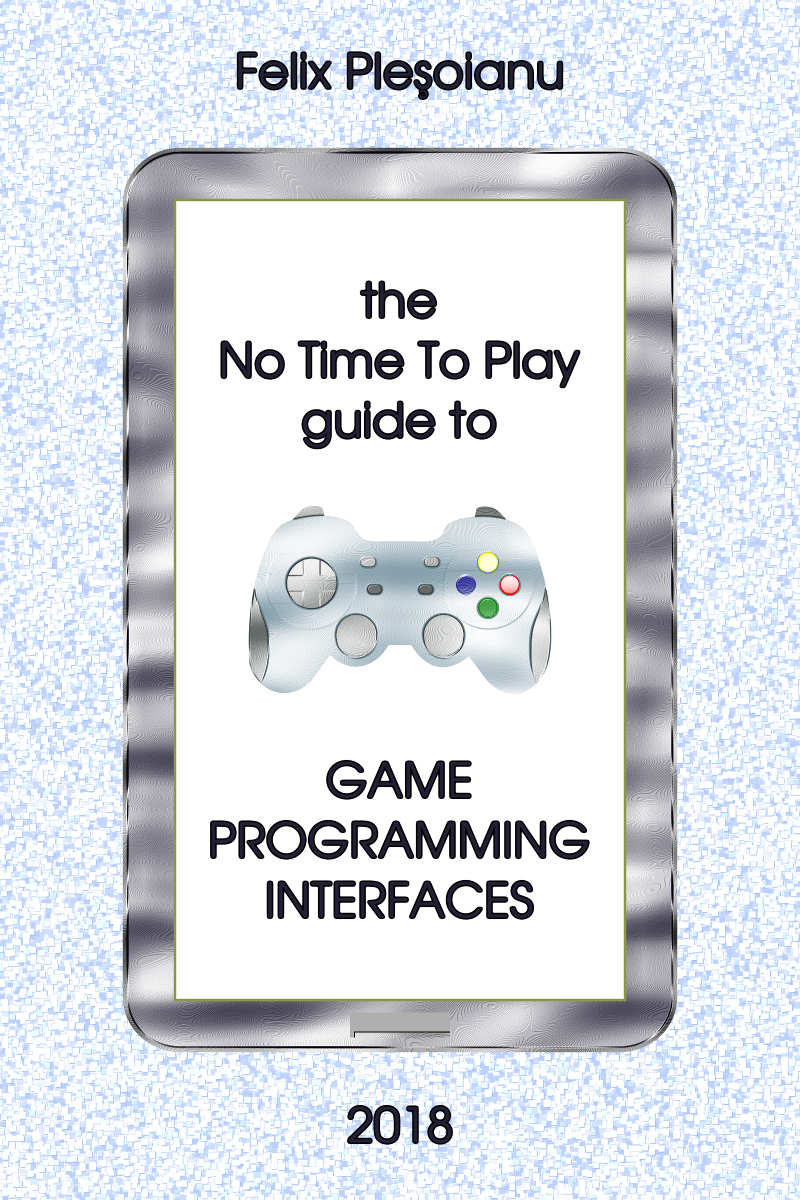Weekly Links #224
2018-06-17
This weekend is a special one for the man behind the No Time To Play curtain. After a year divided equally between disappointments, health issues and fighting fires (thankfully not literal), things seem to have calmed down a little here, and I have a new direction in mind. Sure enough, my new project is already going better than expected, after just a few days. A new toy to play with doesn't hurt either. The only downside is that now I have much to catch up with, so many things to get around to, while my energy isn't what it used to be. Or, for that matter, my vision. Will have to take it easier from now on, and that too will impact how much I can do.
Better make sure my work is meaningful, then. Thanks for sticking with me.
From Emily Short we learn that Graham Nelson recently gave a talk about the Inform programming language -- where it's coming from, and where it is headed. The transcript, complete with slides, is available online, and makes for great reading. Doubly so as nowadays the general public doesn't often get to hear from the man himself.
As for the content, not long into the talk it drifts to the topic of source code as literature, and from there inevitably to literate programming, but not in the way you might expect! In fact, he ends up drawing parallels between the structure of computer programs, and that of text adventures. And then... let's just say that when a linguist talks programming languages, it's always fresh, surprising and inspiring. I don't agree with everything he says, and in fact some of it could be labeled a bit facetious, seeing how various programming languages do apply the principles he speaks of, but still.
Sorry, sorry. I happen to have an interest in programming language design and implementation. Rest assured that the talk goes back to interactive fiction soon enough, and the news are good indeed. Suffice to say, Inform 7 has been going through major and needed changes, even as public releases seemed to stop.
But the most important thing is Mr. Nelson acknowledging new trends in the field, and the need to grow. Which is just the thing to give me hope for the future.
Occasioned by last week's release of Cultist Simulator, itch.io interviews Alexis Kennedy, and there's a lot to process. Fascinating how the founder of a small, highly innovative studio (they invented a whole new paradigm of interactive fiction!) felt the need to set up an even smaller outfit to keep innovating safely.
And yes, Lovecraft-esque horror is all the rage now. Just hang out in a worldbuilding chat for a while. As for it being a metaphor for the Internet, that makes a lot of sense in retrospect. Guess it's a matter of not giving into the madness for the sake of a little magical power.
As for how some game developers manage to gather around them amazing communities, full of nice supportive people and free of abuse... now that could take a whole other interview. But give it some thought.
In preparation for the upcoming Develop: Brighton conference, Chris Bateman writes about the reason players love stories in games. To his credit, he starts with the very important fact that stories is how we make sense of the world. He also points out that stories and gameplay have to work together if they are to work at all. But what's this about making stories "easier to enjoy"? Are we underestimating the intelligence of players again? No, dammit, the stories have to be meaningful! If you can't write a story that makes sense within the game's framework and says something to players, leave it out. They'll make up their own just fine. Look at Angband for instance. There was even a webcomic based on it, you know.
What you should never, ever do is shoehorn a story into a surreal, nonsensical game like Mario, Mortal Kombat or Five Nights at Freddy's. The results can only be ridiculous.
A game without a story can still be played. A story without a game can only be read, viewed, or listened to. So focus on the essential.

On Thursday I released my new book at last. Game Programming Interfaces is a collection of guides I posted on this blog (and before it, the old one) over the last year and change. There are seven of them, covering five different APIs for three languages, all based on practical experience and chock-full of tested code examples. While you can always get them for free (if you know where to look), hopefully the convenience of having them in one place is worth two bucks. Either way, I hope you find it all as useful as it was satisfying to write.
And that's it for this week. See you!